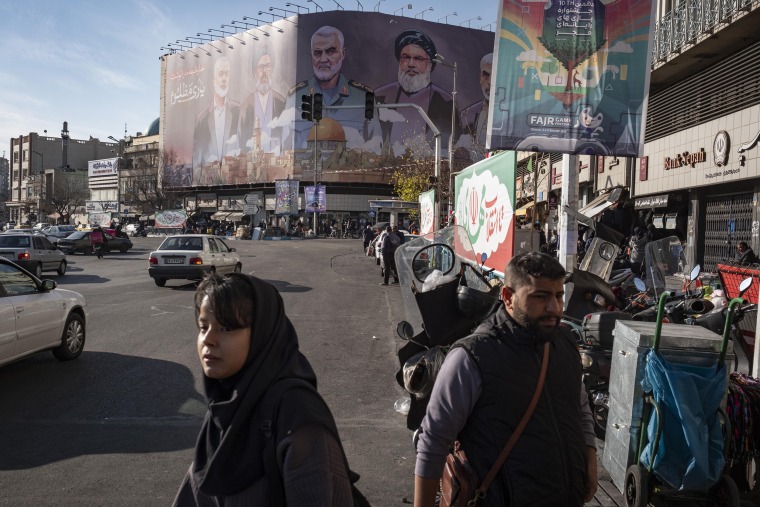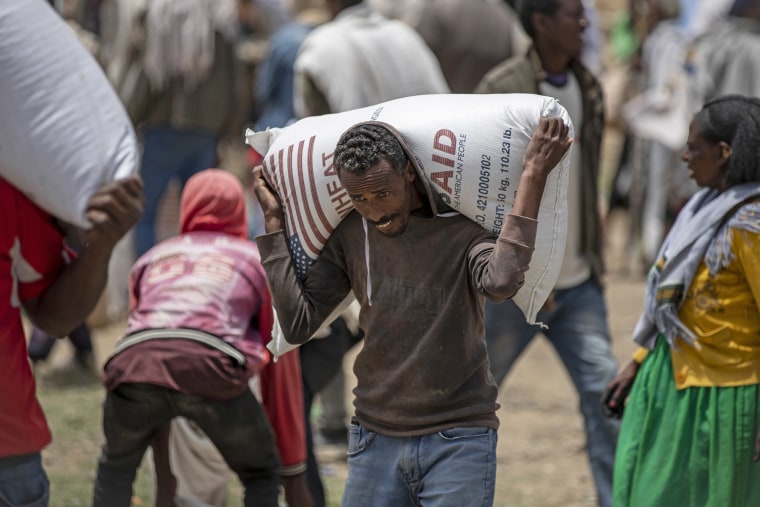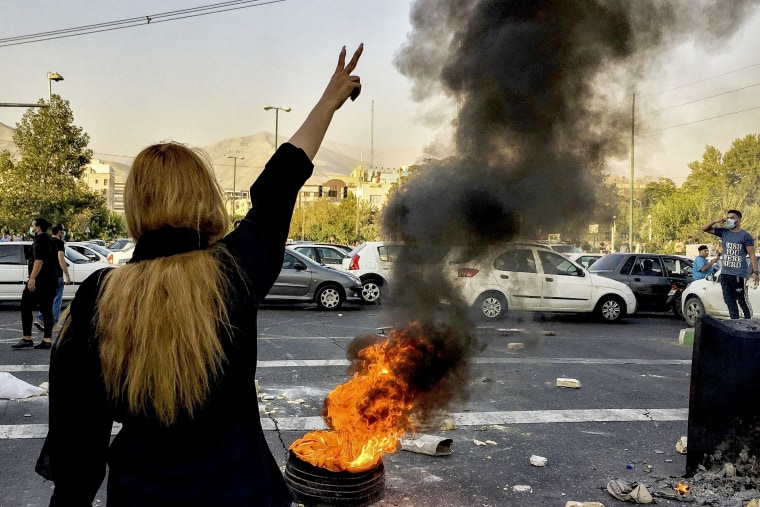TEHRAN, Iran — Iran’s government seems to be welcoming some recent decisions by the United States — even though they happen to come from a man Iranian operatives have allegedly been plotting to assassinate.
President Donald Trump’s moves to freeze spending on foreign aid and overhaul, maybe even end, the U.S. Agency for International Development have been lauded in Iranian state media.
The reports say the decisions will halt funding for opponents of the country’s Shiite theocracy — pro-democracy activists and others supported through programs as part of U.S. government efforts to help democracy worldwide.
At the same time, Iranian officials appear to be signaling that they are waiting for a message from Trump on whether he wants to negotiate over Tehran’s rapidly advancing nuclear program. At stake are potentially billions of dollars withheld from Iran through crushing sanctions and the future of a program on the precipice of enriching weapons-grade uranium.
And even when signing an executive order to reimpose his “maximum pressure on Iran” on Tuesday, Trump suggested he wanted to deal with Tehran.
Meanwhile, ordinary Iranians worry what all this could mean for them. On Wednesday, Iran’s currency, the rial, plunged to a record low of 850,000 to $1 after Trump’s order, showing the ongoing economic volatility they face. A decade ago, it stood at 32,000 rials to $1.

“It encourages hard-liners inside Iran to continue repressions because they feel the U.S. would have less capability in supporting Iranian people who seek freedom,” said Maryam Faraji, a 27-year-old waitress in a coffee shop in northern Tehran.
The state-run IRNA news agency said that “cutting the budget of foreign-based opposition” could “affect the sphere of relations” between Tehran and Washington.
Newspapers, like the conservative Hamshhari daily, described Iran’s opposition as “counterrevolutionaries” who had been “celebrating” Trump’s election as heralding the “last days of life of the Islamic Republic.”
They then “suddenly faced the surprise of cut funding from their employer,” the newspaper crowed.
Even the reformist newspaper Hammihan compared it to a “cold shower” for opponents of Iran’s theocracy abroad, an idea also expressed by the Foreign Ministry.
“Those financial resources are not charity donations,” Esmail Bagahei, Iran’s Foreign Ministry spokesman, said during a briefing with reporters on Monday. “They are wages paid in exchange for services.”
“This is a clear sign of America’s interventionist policy particularly during the Biden administration, which tried to pressure Iran and meddle in its domestic affairs through financial aid,” Bagahei added.
It remains unclear how funding for Iranian activists and opposition figures would be affected by the USAID decision.

Iran also noticed that the U.S. avoided direct criticism of the Islamic Republic during a review by the United Nations Human Rights Council meeting in Geneva last week. For those in Iran’s government, there’s anticipation this could mean that Trump is willing to negotiate, something he repeatedly brought up in his election campaign as a possibility.
Even Iran’s Supreme Leader Ayatollah Ali Khamenei, who has final say on all state matters, in a speech in September opened the door to talks with the U.S., saying there is “no harm” in engaging with the “enemy.” More recently, he tempered that, warning that sinister plots could still be “concealed behind diplomatic smiles.”
While Bagahei, the Foreign Ministry spokesman, acknowledged Iran hasn’t seen any “green light” yet for talks, Iran is trying to do everything it can to signal it wants them.
The country’s reformist President Masoud Pezeshkian, who campaigned on outreach to the West, urged officials on Monday to listen to dissent from the Iranian people and avoid further crackdowns like those that followed the 2022 death of Mahsa Amini.
“The enemies are hoping that by stirring up disputes within the country, they will throw people into the streets and then ride the wave of protests themselves,” Pezeshkian said.

As he signed the executive order on Iran on Tuesday, Trump warned the country would be “obliterated” if he was assassinated by Tehran. But he still left the door open for talks.
“I’m going to sign it, but hopefully we’re not going to have to use it very much,” he said from the Oval Office. “We will see whether or not we can arrange or work out a deal with Iran.”
However, factions within Iran’s theocracy are still likely to oppose talks, whether out of their own self-interest or over anger that Trump ordered the 2020 drone strike that killed Gen. Qassem Soleimani, the country’s top general and a revered figure.
That killing fueled Iranian calls for Trump’s assassination — and alleged plots against him. In November, the Justice Department disclosed an Iranian murder-for-hire plot to kill Trump. While Iran denied being involved, Tehran has a history of plotting the killing of opponents abroad.
“This will not have any impact on the factions that oppose talks with the U.S., but maybe some moderates find it as an excuse to say that Trump is taking some steps,” Iranian political analyst Ahmad Zeiabadi said.






